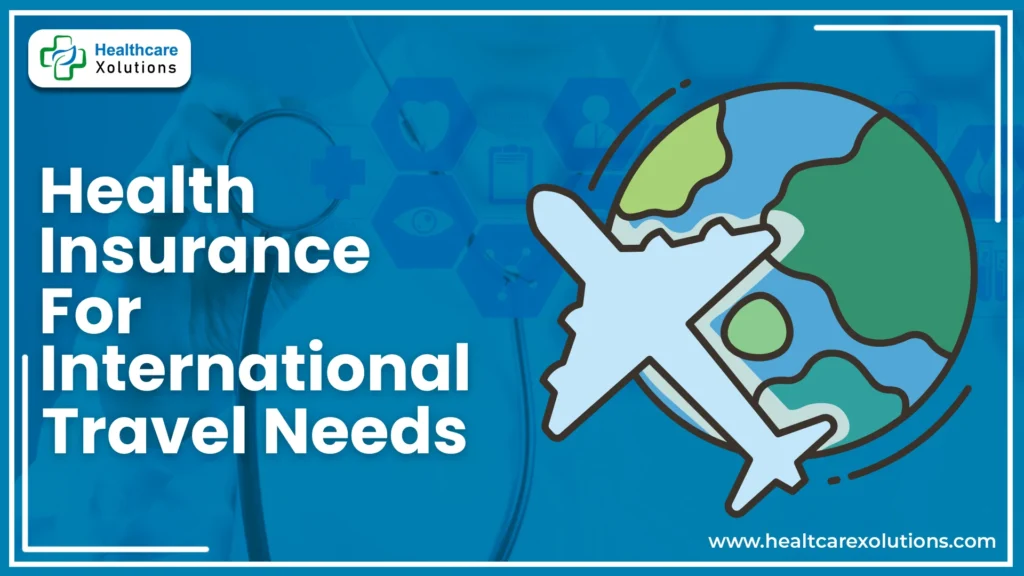How To Choose Health Insurance For International Travel Needs?

Traveling internationally can be an exciting experience, but it also comes with risks. One of the most critical considerations for any traveler is health insurance. Medical emergencies, accidents, or unexpected illnesses can occur anywhere, and having proper health coverage ensures financial protection and access to quality healthcare.
This article will help you understand how to choose the best health insurance for your international travel needs.
Key Takeaways:
- Assess Travel Needs: Consider destination, duration, and planned activities to determine required coverage.
- Types of Insurance: Options include single-trip, multi-trip, long-term, and comprehensive travel insurance.
- Coverage & Benefits: Look for medical expenses, emergency evacuation, repatriation, and COVID-19 coverage.
- Review Exclusions: Check for pre-existing conditions, high-risk activities, and other policy limitations.
- Compare & Evaluate: Use online tools, read reviews, and balance cost vs. benefits before purchasing.
Table of Contents
What Is Health Insurance:
Health insurance is a type of insurance coverage that helps pay for medical expenses incurred by an individual or a group. It provides financial protection against high healthcare costs, ensuring that policyholders can afford necessary medical services without bearing the full burden of expenses.
Key Features of Health Insurance:
- Premiums: Regular payments made to maintain coverage.
- Coverage: Includes hospital stays, doctor visits, medications, surgeries, and preventive care, depending on the plan.
- Deductibles: The amount policyholders must pay before insurance starts covering costs.
- Co-payments & Coinsurance: A share of medical costs paid by the insured alongside the insurance provider.
- Network Providers: Some plans require using specific doctors or hospitals within a network for better coverage.
- Government vs. Private Insurance: Some plans are provided by governments (e.g., Medicare, Medicaid) or private companies.
Health insurance ensures access to healthcare services, reduces financial risk in case of medical emergencies, and promotes overall well-being by covering preventive care.
Select The Health Insurance For International Travel Needs:
1. Assess Your Travel Needs:
Before selecting a health insurance plan, evaluate your travel itinerary, including the destinations, duration of stay, and activities planned. Some destinations have higher medical costs, and certain activities like skiing, scuba diving, or hiking may require specialized coverage. Understanding your travel profile will help you determine the extent of coverage needed.
2. Types of Travel Health Insurance:
There are different types of travel health insurance policies, including:
- Single-Trip Insurance: Covers a one-time trip for a specified duration.
- Multi-Trip Insurance: Ideal for frequent travelers, providing coverage for multiple trips within a specified period.
- Long-Term Travel Insurance: Suitable for extended stays, such as expatriates, students, or digital nomads.
- Comprehensive Travel Insurance: Includes not only medical expenses but also trip cancellations, lost baggage, and other travel-related risks.
3. Coverage and Benefits:
When selecting international travel health insurance, consider the following key benefits:
- Medical Expenses: Coverage for hospitalization, doctor visits, and emergency treatments.
- Emergency Medical Evacuation: Covers transportation costs if specialized treatment is required in another location.
- Repatriation of Remains: Covers the cost of returning the insured’s body in case of death.
- Pre-existing Conditions Coverage: Some policies offer coverage for pre-existing medical conditions with additional premiums.
- COVID-19 Coverage: Many insurers now offer coverage for pandemic-related medical expenses.
4. Exclusions and Limitations:
Always review the exclusions of a policy before purchasing. Common exclusions include:
- Pre-existing medical conditions (unless specifically covered)
- High-risk activities such as extreme sports
- Injuries caused by alcohol or drug use
- War or political unrest-related incidents
5. Provider Network and Direct Billing:
Check whether the insurance provider has a wide network of hospitals and clinics in your travel destination. Direct billing arrangements with healthcare providers can simplify the process and reduce out-of-pocket expenses.
6. Compare Plans and Read Reviews:
Use online comparison tools to evaluate different travel health insurance plans. Look for reviews and ratings from other travelers to assess the reliability of the provider, ease of claims processing, and customer service quality.
7. Consider Cost vs. Benefits:
While affordability is a key factor, the cheapest policy may not always provide sufficient coverage. Ensure that the plan offers comprehensive benefits without compromising on essential features.
Conclusion:
Choosing the right health insurance for international travel is crucial to ensuring peace of mind during your journey. By assessing your needs, understanding the types of coverage, and comparing plans, you can select a policy that provides optimal protection. Investing in the right travel health insurance can save you from unexpected medical expenses and allow you to focus on enjoying your trip.
